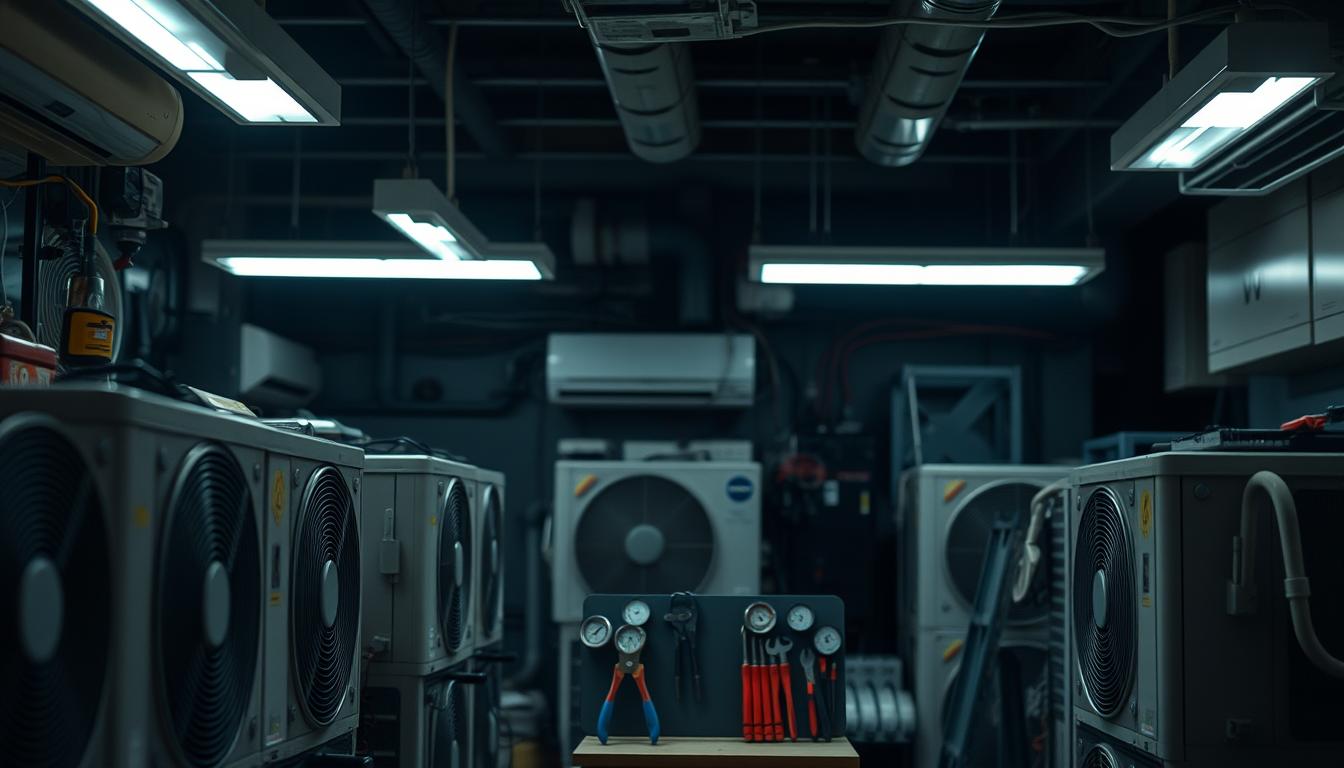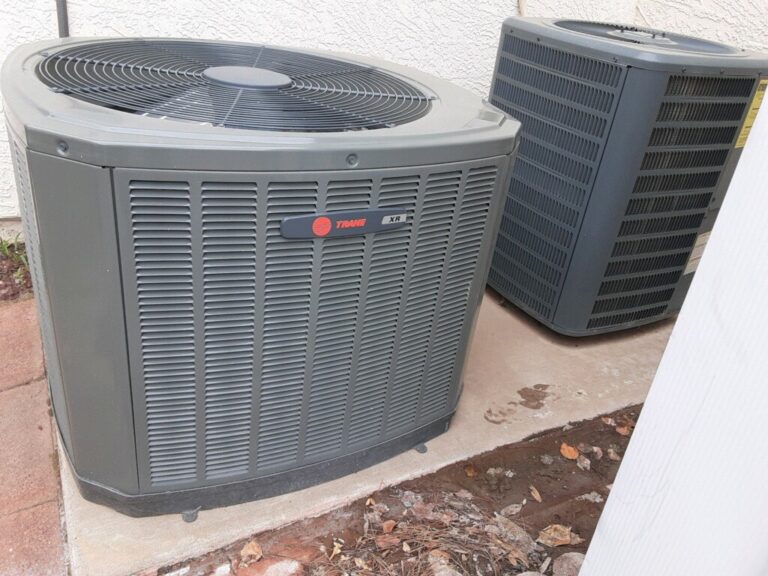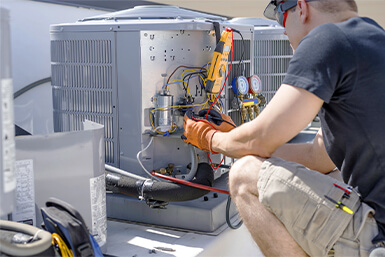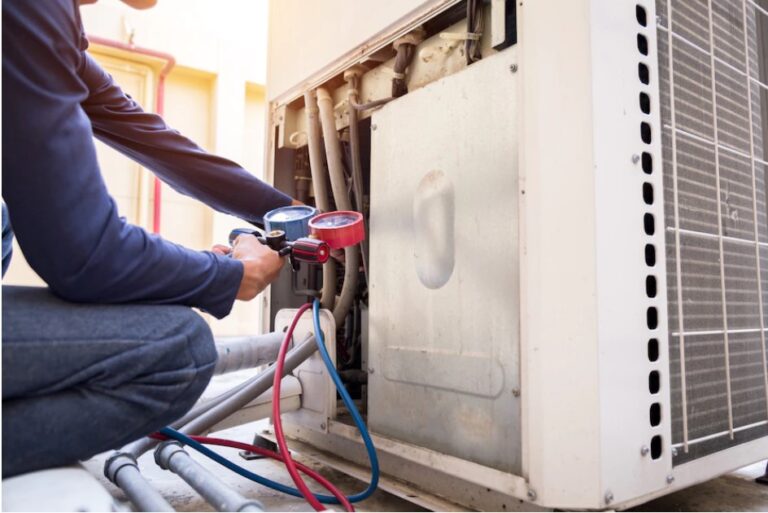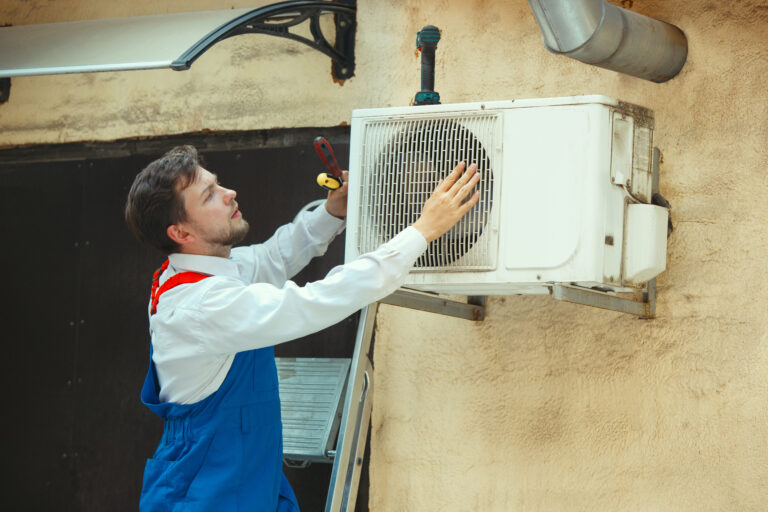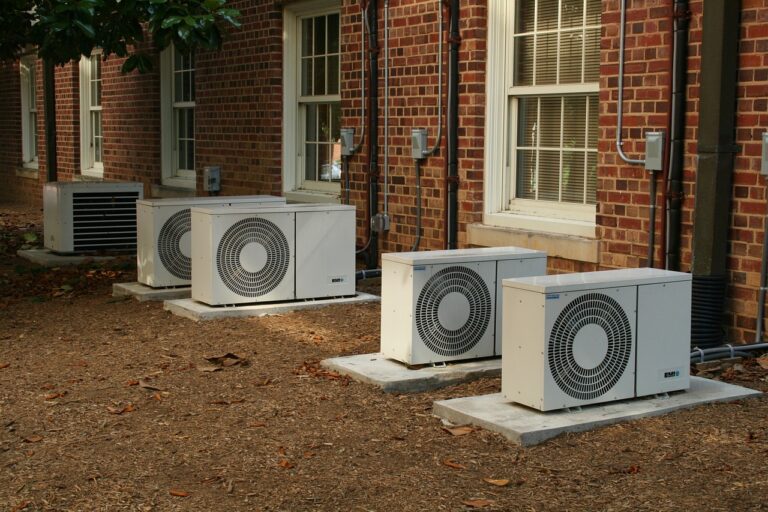Weird AC Noises Explained: What They Mean and What to Do
Unusual sounds from your air conditioning unit can be scary. Common air conditioning noises like banging, squealing, hissing, and rattling often mean there’s a problem.
Knowing what these HVAC system sounds mean is key to keeping your AC working well. If you ignore these noises, bigger issues could arise.
By figuring out where the noise is coming from, you can fix it before it gets worse. This section will cover the usual noises and what might be causing them.
Common AC Noises You Might Hear
It’s important to know what sounds your air conditioner makes. This helps keep it running well and lasting longer. Air conditioners can make different sounds, each with its own reasons and meanings.
Let’s look at some common noises and what they might mean for your air conditioner’s health.
Hissing Sounds and What They Indicate
A hissing sound from your air conditioner usually means there’s a refrigerant leak. This not only makes the unit cool less efficiently but also harms the environment because of the refrigerant release.
Key issues associated with hissing sounds include:
- Refrigerant leaks
- Inefficient cooling
- Potential environmental hazards
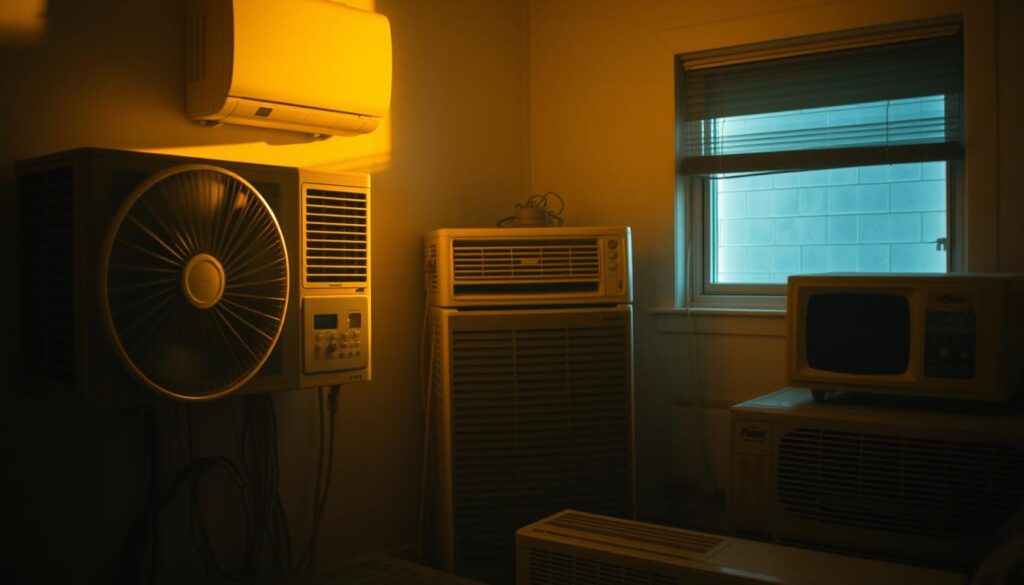
Rattling Noises and Their Causes
Rattling noises usually mean there are loose parts in the air conditioner. If not fixed, these loose parts can damage the system more.
Possible causes of rattling noises:
- Loose screws or bolts
- Debris within the unit
- Worn-out or damaged parts
Clicking Sounds: Should You Be Concerned?
Clicking sounds often mean there are electrical problems or issues with the compressor. Finding out where these sounds come from is key to avoiding bigger system failures.
Potential causes of clicking sounds:
- Electrical malfunctions
- Compressor issues
- Control system problems
Understanding Whistling Noises from Your AC
It’s important to know why your air conditioner whistles. Whistling sounds can mean different things, like clogged air filters or leaky ducts. These issues can affect how well your AC works.
When your AC whistles, it’s often because it’s working too hard. This can happen if the ducts are the wrong size or if there are leaks. If the ducts don’t fit right, your AC has to work harder. This can make it noisier and cost more to run.
Possible Reasons for Whistling
There are a few reasons why your AC might whistle. Some common ones include:
- Clogged air filters: Dirty filters can block airflow, causing strange noises.
- Leaky ducts: Duct leaks can let air out, making whistling sounds.
- Improper duct sizing: Ducts that are too big or too small can also whistle.
Experts say checking the ductwork is key to finding out why your AC whistles. A top HVAC technician notes, “A whistling sound usually means there’s a bigger problem, like a duct leak or blockage.”
“A whistling sound is often a symptom of a larger issue, such as a leak or obstruction in the ductwork.”
Impact of Ductwork on Noise Levels
The state and design of your ductwork greatly affect your AC’s noise. Poorly insulated or leaky ducts can make more noise and lower your HVAC’s efficiency.
| Ductwork Issue | Impact on Noise Levels | Potential Solution |
|---|---|---|
| Leaky Ducts | Increased whistling noise | Seal leaks with mastic sealant |
| Improper Sizing | Whistling or rattling noises | Resize ducts to match AC unit capacity |
| Poor Insulation | Increased noise levels | Insulate ducts with appropriate materials |
Fixing ductwork issues can reduce whistling and improve your AC’s efficiency. Regular maintenance, like changing air filters and checking ducts, is vital for quiet and efficient AC operation.
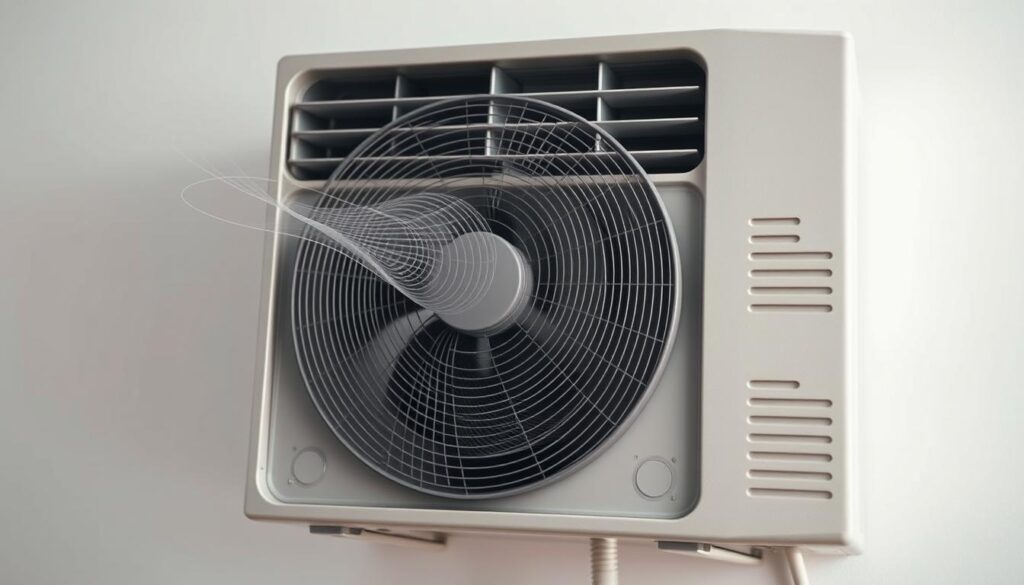
Loud AC Noises: When to Worry
Loud AC noises can be more than just annoying; they often mean there’s a problem. Air conditioners make some noise when they work. But, loud or unusual sounds can indicate problems that need professional help.
Differentiating Normal and Abnormal Sounds
It’s key to tell normal sounds from those that mean trouble. Normal sounds are usually a gentle hum or air whoosh. But, abnormal sounds are louder and may include banging, screeching, or grinding noises. Listen carefully to the noise:
- Is it continuous or intermittent?
- Does it change pitch or volume when the AC is operating at different settings?
- Is the noise coming from the indoor unit, outdoor unit, or ductwork?
By answering these questions, you can give important info to a pro if you need help.
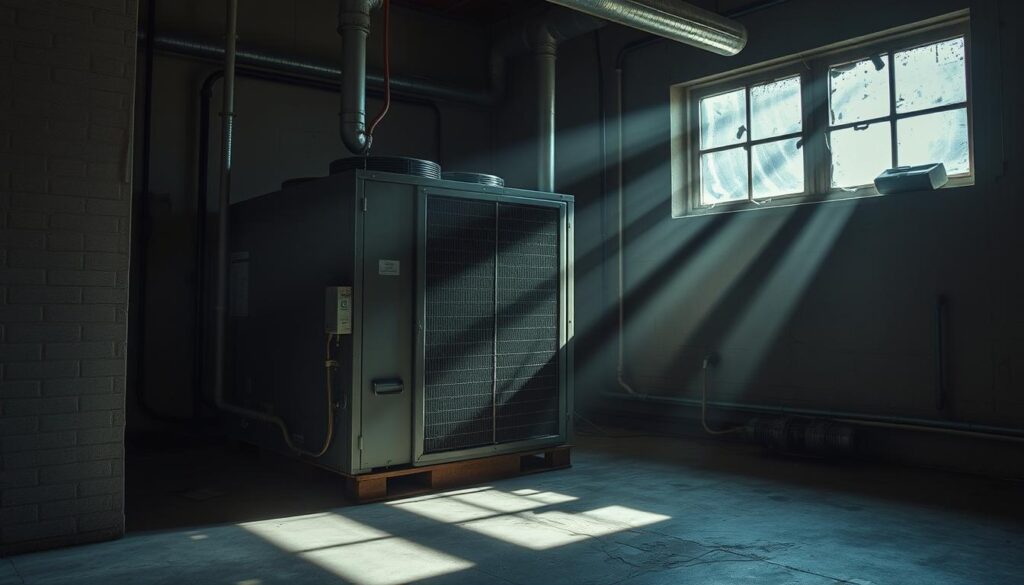
Signs It’s Time to Call a Professional
If you notice any of these signs, it’s likely time to call a pro for HVAC noise diagnosis:
- Loud banging or clanging noises that could indicate loose or broken parts.
- Screeching or grinding sounds that may signify worn-out or malfunctioning components.
- Continuous or persistent noises that do not stop or change when the AC operates at different settings.
Ignoring these signs can cause more damage and cost a lot to fix or replace. A pro can troubleshoot air conditioner sounds well and fix them to keep your AC running smoothly and quietly.
Annoying AC noises shouldn’t be ignored. By knowing the causes and when to get help, you can keep your air conditioner working well and last longer.
Tips to Reduce Noisy AC Operation
To cut down on HVAC system sounds, homeowners can try a few easy steps. Knowing why common air conditioning noises happen helps you fix them. This makes your AC unit quieter and more efficient.
Regular Maintenance for Quiet Performance
Keeping your AC unit in good shape is key for quiet operation. This means cleaning filters, checking for worn parts, and making sure everything is tight. HVAC pros say, “Regular upkeep can greatly lower AC noise, making it essential for a quiet HVAC system.”
“A well-maintained AC unit not only operates more quietly but also lasts longer and consumes less energy.”
Here are some important maintenance tasks:
- Clean or replace air filters every 1-3 months.
- Inspect and clean condenser coils annually.
- Tighten loose parts and check for worn-out components.
Insulating Ductwork: Is It Effective?
Insulating ductwork is a great way to lessen common air conditioning noises. Leaks or vibrations in ducts can make a lot of noise. Insulating your ducts helps fix these problems.
| Insulation Method | Effectiveness in Noise Reduction | Additional Benefits |
|---|---|---|
| Wrapping ducts with insulation | High | Energy efficiency, reduced heat loss |
| Sealing duct leaks | High | Improved air quality, reduced energy bills |
| Using insulated ducts | Very High | Enhanced durability, better noise reduction |
As the table shows, insulating ductwork not only cuts down on noise. It also boosts energy efficiency and air quality.
Final Thoughts on AC Noises and Solutions
It’s important to know about AC noises to keep your system working well. By understanding common sounds and their causes, you can fix problems and avoid bigger issues.
Practical Insights for Homeowners
Knowing how to find and fix AC noises is helpful. This skill lets you tell normal sounds from ones that need a pro. It helps you get your AC fixed quickly.
Knowing When to Seek Expert Help
Some AC problems you can fix yourself, but others need a pro. Knowing when to ask for help is key. It ensures your AC gets the right care, solving noise issues effectively.

